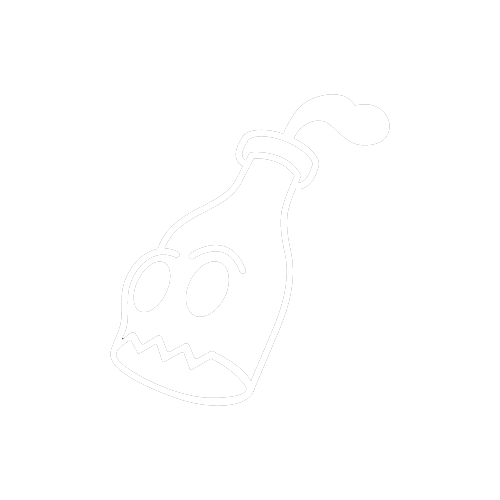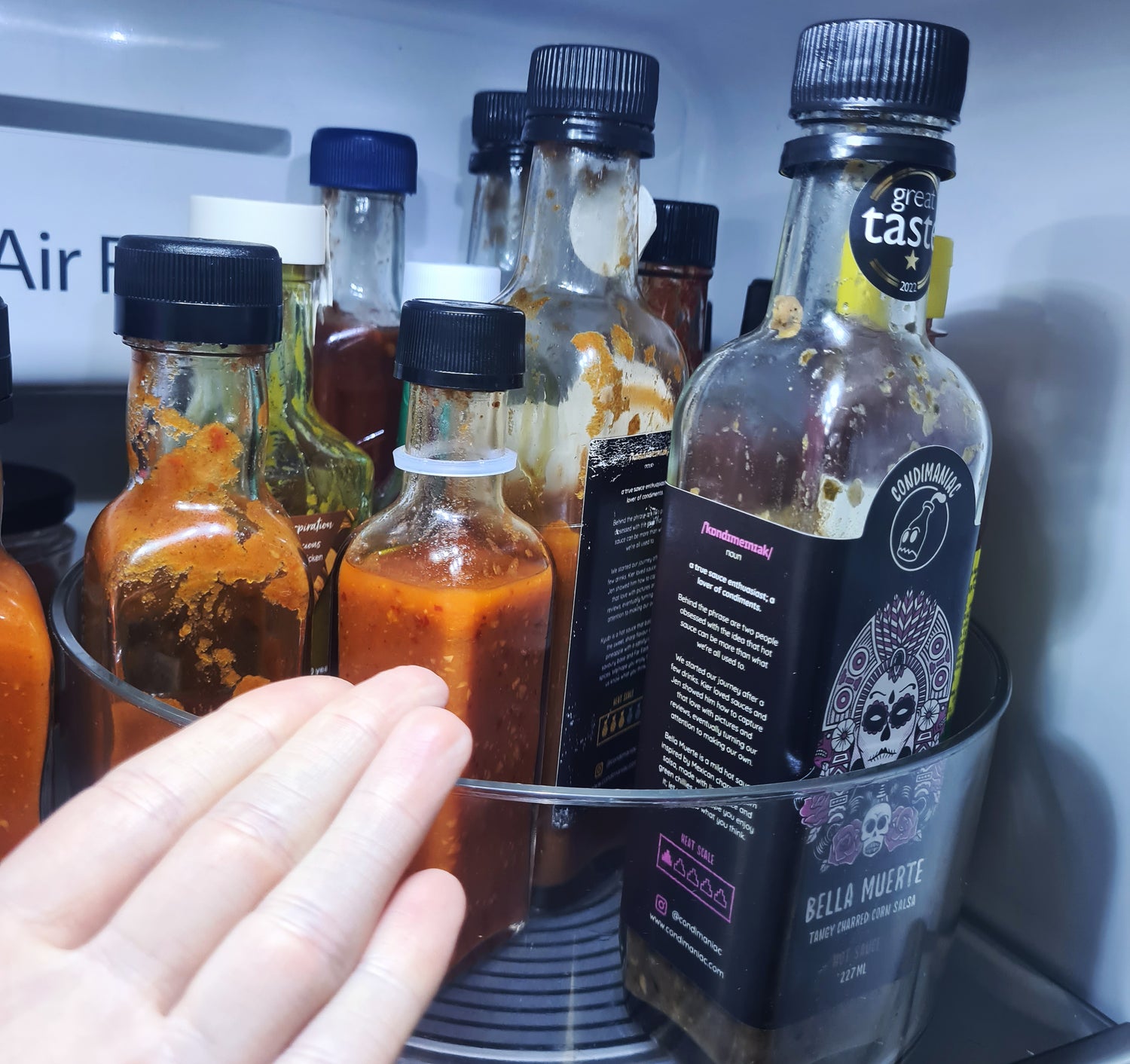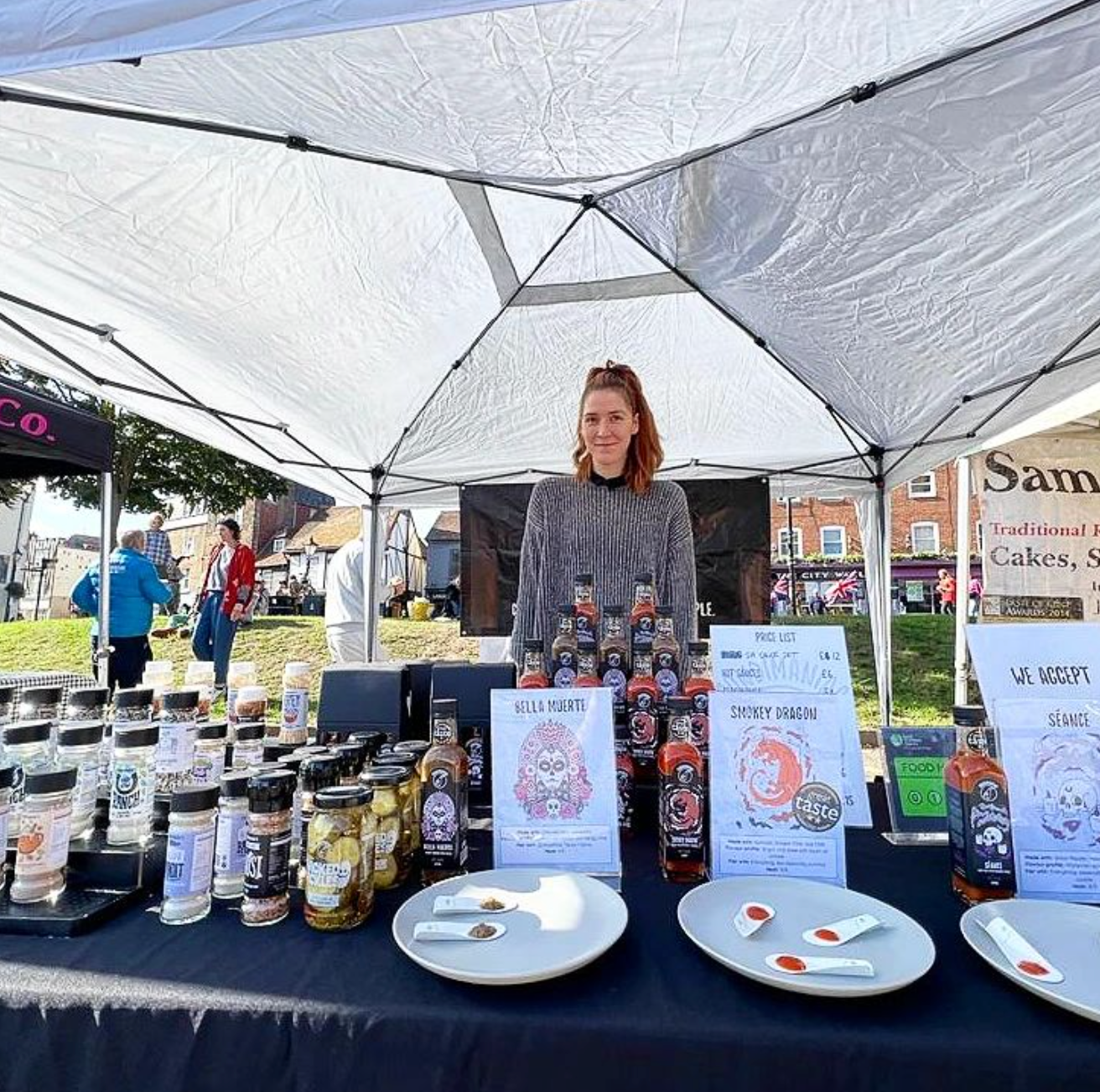It's the age old question: Does ketchup belong in the fridge or the cupboard?
I'm sorry to say, once opened, it's definitely the fridge. And that's not because it wouldn't be safe to store it in a cupboard, but over time, it will degrade, the colour will fade and the taste may become more dull. It's still fine to consume, but it won't look and taste how the manufacturer intended.
The reason it's more a question of quality rather than safety is that ketchup contains a tonne of sugar and vinegar - as well as salt. All these ingredients are natural preservatives, meaning it's extremely hard for anything nasty to grow in it.
At Condimaniac, all our sauces are made with Apple Cider Vinegar and have a low pH, which means they also will most likely not go bad outside of the fridge, however we advise (on the bottle, too), to keep them in the fridge after opening. We've done extensive testing on our sauces - in and out of the fridge - and in order to retain the optimal taste, texture and colour, the fridge is a must.
For any creamy sauces, especially those that contain animal products like eggs, milk etc., it could be a health hazard to store them outside of the fridge. So as a rule of thumb, wet things should really be kept in the fridge, unless it's pure vinegar or oil. Did you know even soy sauce says on the bottle that it should be refrigerated after opening? Wild, I know.
Now let's move on to seasonings. Generally these are very low moisture, so it's imperative to keep it that way. Store them in a cool, dry place away from direct sunlight and once opened, make sure to close them properly so no moisture can creep inside.
It also helps to not use shakers directly over hot pans and pots as the steam will get inside, resulting in clumps. It won't be unsafe to consume, but potentially an unpleasant experience.
Here at Condimaniac we don't add preservative ingredients to our seasonings so our Best Before dates are dictated by the ingredients we buy, though best before doesn't mean it expires on the date shown. Best before just means exactly that, it's BEST before the date, but it's still very good after, and potentially for a long time. It won't become unhealthy to eat after the date, we as the manufacturer just don't guarantee the BEST quality once the date has passed.
In real terms it may mean that 6 months down the line the flavour may very slowly fade, though I'll be real with you - we still have some seasoning mixes of ours that were best before 2020 and they're absolutely fine and have lost no quality at all.
So best before = no health risk to consume after the date, just keep checking if it's tasty still.
Use by = definitely chuck after the date shown.
Okay, that was a bit of an excursion into a different topic, but I think it's important to keep mentioning it to reduce food waste and that.
But yes, seasonings do best cool, dark and dry.
If some moisture did creep into any of your seasonings, sometimes adding some dry rice grains can help.
How do you store your condiments?




Leave a comment
All comments are moderated before being published.
This site is protected by hCaptcha and the hCaptcha Privacy Policy and Terms of Service apply.